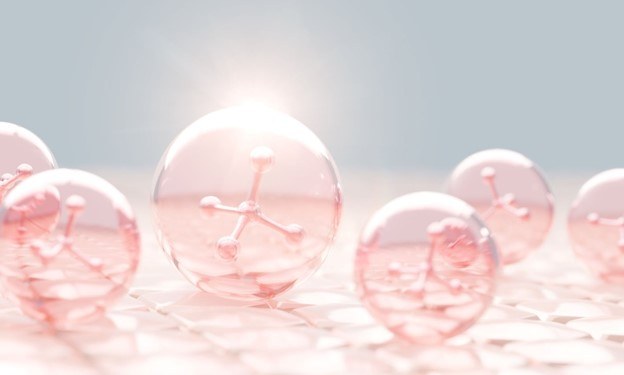- By Altrient
Skin from within: The science behind flawless skin with Dr. Bibi
While most people are aware of the importance of taking care of their skin through topical rituals and products, like moisturisers, serums and SPFs - the list goes on, many ignore the nutritional changes that will reflect strongly on the skin. Healthy diet and supplementation of vitamin C and collagen, among others, are true nutritional heroes when it comes to taking care of our health and skin from within.
In this insightful interview, from the Altrient Vitamin C Convention 2022, Susie Perry, Dip ION Food Scientist and Nutritional Therapist and Dr. Bibi Ghalaie, Cosmetic Physician, Lecturer and Founder & Medical Director at Doctor Bibi Clinic, explore the best evidence-based skin care tips to nourish and protect your skin from within.
“When it's a skin condition that can outwardly be seen, it can really affect all aspects of your being, not just physically but also psychologically” - Dr Bibi.
The skin from within

In order to understand how to take care of our skin, we need to understand how the skin works. Dr Bibi mentions that we have three overall layers of skin: Epidermis, Dermis and Hypodermis. The first one has other 5 layers (stratum basale, stratum spinosum, stratum granulosum, stratum lucidum and stratum corneum). The Dermis is where many processes take place, like collagen formation, immune function, support and flexibility of the cells.
The interesting fact is that our skin is constantly changing as we go through different stages of our lives; encounter different types of exposure: like pollution and Ultraviolet (UV) rays and have specific habits regarding smoking, drinking and our diet. Our skin often changes its composition, this is the reason why it looks different from the outside as we grow older, says Dr. Bibi.
UV rays: what is the difference?

According to Dr. Bibi, there are three types of UV rays: A, B and C. We often only consider A and B, because the C wavelength is too short to reach and damage the skin.
UVA: Reaches 60% deeper than UVB into the skin, goes as far as the bottom of the dermis, reaching the deepest part of the skin. It triggers free radicals that can damage DNA and break down collagen and elastin. Therefore, cells can become carcinogenic over time.
UVB: Hits the epidermis. Can also contribute to skin cancer and premature aging.
The damage caused by the UVA and UVB sun rays is a result of the formation of reactive oxygen species and free radicals that lead to oxidative stress and also decrease the formation of new collagen in the skin.
Unlocking your sunscreen´s potential

Dr Bibi explains the higher the SPF (sun protector factor), the longer you are protected from sun radiation. She also says that being tanned while having sun protection is very much possible:
“the melanin cells can still come up to the surface and the tanning effect will still be produced”.
As a recommendation, she says It's important to have sunscreen that blocks both UVA and UVB with a high factor, constantly re-apply it, knowing that on average the protection will last from 4 to 6 hours and finally, applying the right amount.
“Sunscreens don't protect from oxidative stress, so having an antioxidant applied to your skin, such as a topical Vitamin C, is really important.”- Dr. Bibi
Apparently, even high factor sunscreens do not fully protect the UV rays from reaching your skin and causing damage, therefore, using an antioxidant after sun exposure or taking a supplement is very helpful.
What about nutrition?
High caffeine in tea, chocolate and coffee can be detrimental for the skin, since it triggers collagen breakdown. Smoking and drinking alcohol as well as eating refined sugar is a no go either. Instead, trying to replace caffeine and sugar for protein rich meals and increasing protein intake by 20% to 30% can suppress energy cravings and help with weight management as well.
Vitamin C helps boost collagen production

Collagen is a double helix structure composed with amino acids and peptide bonds. Vitamin C is very important for its synthesis. We can't get all the vitamin C we need from our diet because most of it it's broken down in the stomach. Absorption is key and therefore Dr. Bibi highly recommends Altrient C:
“After 8 weeks of taking it you can see a significant improvement in the elasticity and firmness of the skin and significant decrease in fine lines and wrinkles, those are things im happy to relate to my patients and say to them with confidence, I know this supplement will help not only in terms of your energy and your health and well-being but actually outwardly you will see a difference in your skin” Dr Bibi.
Which other vitamins are involved?
Usually when talking about skin care, Vitamin A or Retinol comes up. Dr. Bibi advises that it is very important to know that when taking these supplements, normal possible outcomes are: redness, irritation, dryness and sensitivity, while people mistake these for side effects, it just shows how retinol is repairing the skin. But if there is no effect on inner health improvements or collagen scaffold, your skin will not look healthy.
Another amazing effect of Vitamin C comes into play on the preconception stage, when people are preparing to become pregnant. Even if we only hear about Folic acid and Zinc; Vitamin C becomes important for the structure of blood vessels, bones, nails, skin, hair, etc. Taking 2 Altrient C twice a day could be very beneficial for the preconception stage.
Finally, Dr Bibi explains that during the start of menopause, 60% of collagen is lost. Therefore, trying to boost elastic and collagen levels in your skin is ideal at this stage.
In general, supplementation and lifestyle changes are important steps into achieving flawless skin from within throughout different stages in our lives. Don´t miss out on what other experts have to say about health and nutrition in the Vitamin C convention!
To get in touch with Dr Bibi: enquiries@doctorbibi.co.uk or follow her on instagram @doctor.bibi. For more tips on skin care visit our blog.